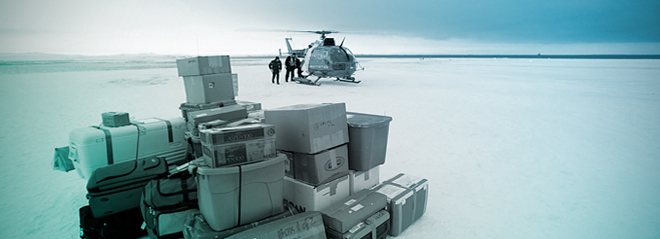|
|

|
|

|
|

|
|
Complementarity and cooperation between partners, Associated international experts and Subcontractors
Complementarity and cooperation between partners:
The ARCTIC METALS team project comprises a variety of disciplines with a common objective: metal cycle in the environment. From fundamental isotope geochemistry (partners 1, 2) and speciation (partners 3 to 6), to ecosystems/biodiversity (partner 1 and 3) and bio-accumulation and human exposure & health (partner 1 an 2), our team is unique and put together 6 CNRS laboratories along with their international collaborations in Canada and Russia, forming a consortium of more than 30 scientists, engineers and technicians. All partner laboratories are specialized in different but complementary aspects of metals and environmental studies. International collaborators of partner 1 and 3 will give access to field stations and localities for all partners, in particular the SILA network stations in Canada, which is unique and part of the international SCANNET network. Finally, the scientific expertise of partners crosses the fields of chemistry, geology/(isotope)geochemistry, (micro-) biology/(microbial-) ecology, limnology/biodiversity, agronomy, eco-toxicology, health sciences, which is, in our opinion, relevant for an integrated study on metal contaminant in the environment. Our team will also benefit from expert collaborators (listed below) specialized in thermokarst lake ecosystems, chemodynamic models and high arctic lake studies.
Associated international experts:
- Isabelle Laurion (INRS-ETE, regular CEN member)
Prof. Laurion is expert in climate change and its influence on lake ecosystems (bacteria, phytoplankton, microzooplankton). Current studies concern the thermokarst lakes and the carbon cycle in these systems. She will be part of the Steering Committee.
- Charles Gobeil (INRS-ETE)
Prof. Gobeil is expert in aquatic geochemistry and study early diagenesis and trace element behavior in sediments and interstitial waters. With his team, he works on historical metal contaminant fluxes in lake ecosystems and metals bio-amplification.
- Marc Amyot (U. of Montréal)
Prof. Amyot is specialized in metals biogeochemistry. He is active in the Northern Contaminant Program of Ministry of North and Indians affairs: "Production and loss of methylmercury, and its uptake in lake food webs of the High Arctic", namely on photodemethylation of Hg in arctic aquatic systems.
Subcontractors:
SARM - CNRS National Facility for Rock and Mineral Analyses, located at CRPG Nancy. Note that the
SARM budget for service to other CNRS laboratories is managed directly by INSU and not by CRPG.
GEOTOP - Centre de Recherche en géochimie et en géodynamique, université du Québec à Montréal





